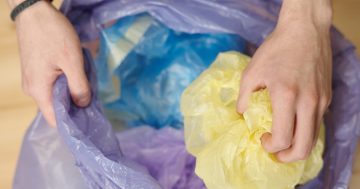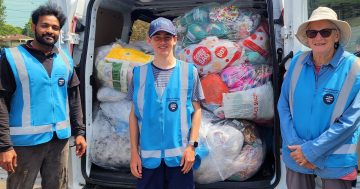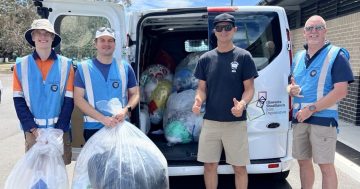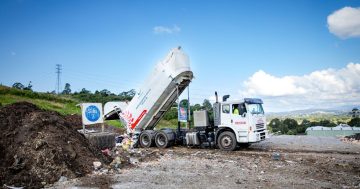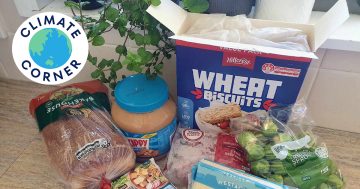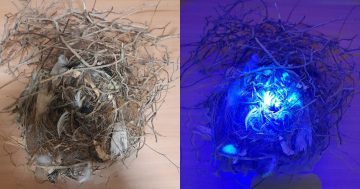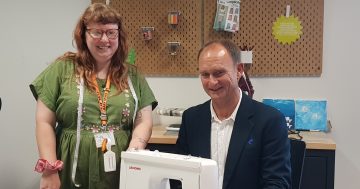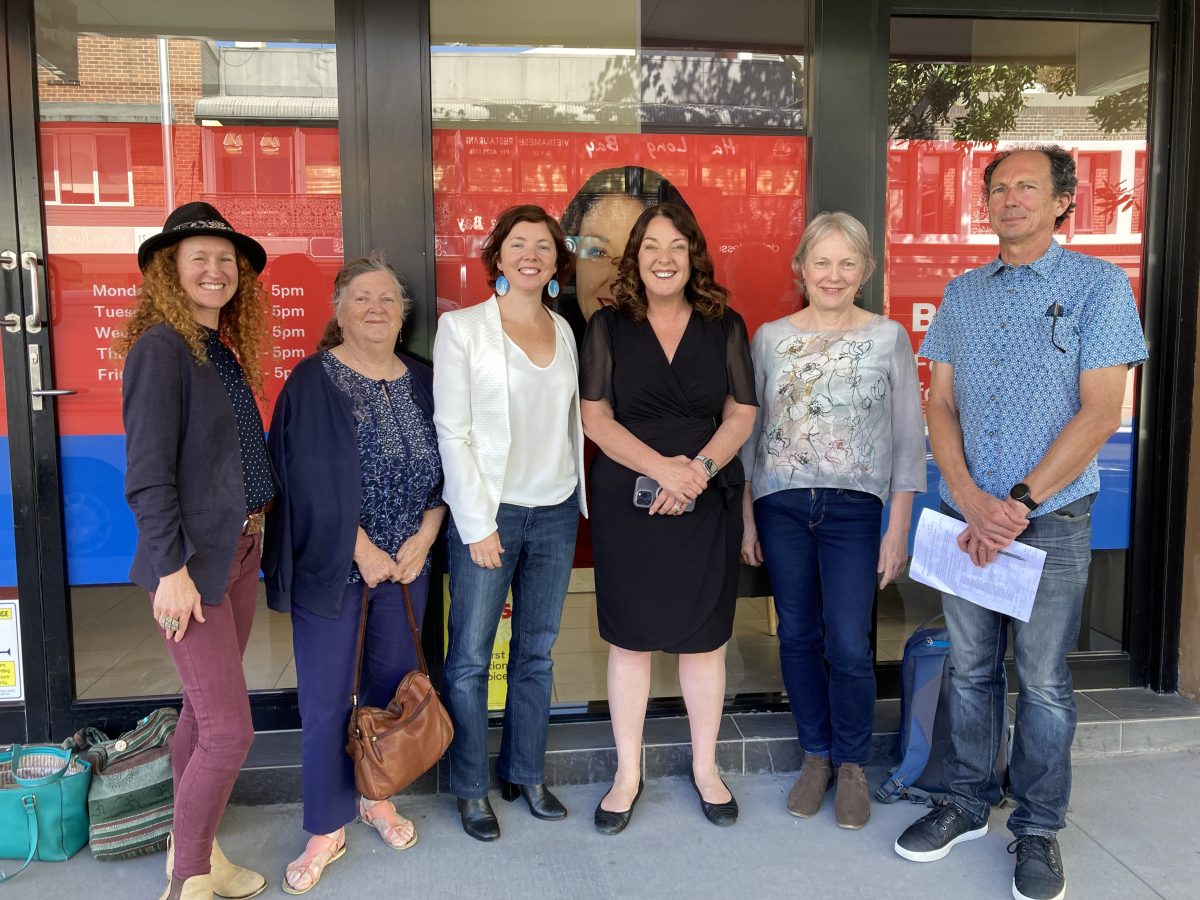
Circular Plasitcs Illawarra members met with Alison Byrnes MP to discuss the need for a soft plastics recycling option. Photo: Helen Lewis.
If you’ve been stashing soft plastics in the garden shed since the collapse of REDcycle, there’s hope on the horizon.
The scenario isn’t as unusual as it might sound. In a recent survey by Circular Plastics Illawarra about 17 per cent of respondents said they were holding on to soft plastics in the hopes another recycling scheme would eventuate.
Group member Helen Lewis said there was intense frustration in the community about the lack of recycling options for the ubiquitous product.
“Circular Plastics Illawarra began after Kylie Flament organised a community meeting in the wake of the REDcycle collapse,” Helen said.
“There was so much interest we decided to go forward as a group of concerned people and organisations from 2023.
“When we set up the survey people told us they were storing soft plastics in their garage and it’s piling up. Some take it up to friends or family in Sutherland to be recycled through the scheme there, or to Moss Vale to be recycled through the Wingecarribee program.”
Even the survey respondents who dispose of their soft plastics in the red bin want to see a change.
Although there was a spread of preferences about the best method of collection, from retail drop-off points to a special bag in the yellow bin, or council pickup, almost all respondents said they would be happy with any recycling option at all.
Wingecarribee and Shoalhaven councils have both signed on to trial soft plastics recycling programs.
Circular Plastics Illawarra has urged Wollongong City Council to prioritise the actions for soft plastics in council’s Waste and Resource Recovery Strategy following the 14 September election.
Helen said it wasn’t just a move for the environment. The development of soft plastics recycling facilities in the region could be an opportunity for business and employment.
She hopes the trials will ensure long-term soft plastics recycling doesn’t run into the economic issues that were the death knell of REDcycle.
“You can’t just collect something; you have to be able to process it into something somebody wants to buy,” she said.
“Soft plastics are an issue for lots of reasons. They’re often complex materials made of different plastics, adhesives, paper, aluminium and ink.
“They’re often contaminated with food, and all this makes them complex to process.”
A couple of companies, however, have found ways to turn soft plastics into an asphalt additive, new packaging, or more solid plastic items like bins.
Helen said this was a cause for hope.
On the other end of the supply chain, though, there’s more work that needs to be done on the elimination of single-use plastics.
“Consumers can do their best to avoid single-use plastics, but we also need regulation,” she said.
“The NSW Environment Protection Agency has targeted soft plastics in their latest round of proposals for single-use plastic regulation.
“Sauce sachets with fast food for example are a real problem. They’re tiny, made of complex substrates and heavily contaminated by food, so they’re not recyclable.
“We need companies to step up and use the minimum amount of necessary plastics and redesign their packaging so it is recyclable at the end of its life.”
The Circular Plastics Illawarra page has some tips on how households can avoid single-use plastics, but Helen said it was important to be realistc.
“We can’t go back to the days where we walked to the shops with our baskets every day,” she said.
“Now we shop at supermarkets; we don’t shop daily, it’s weekly or fortnightly and food travels long distances.
“It’s a system that’s very different and plastic is embedded in that, but we can all do our bit.”









